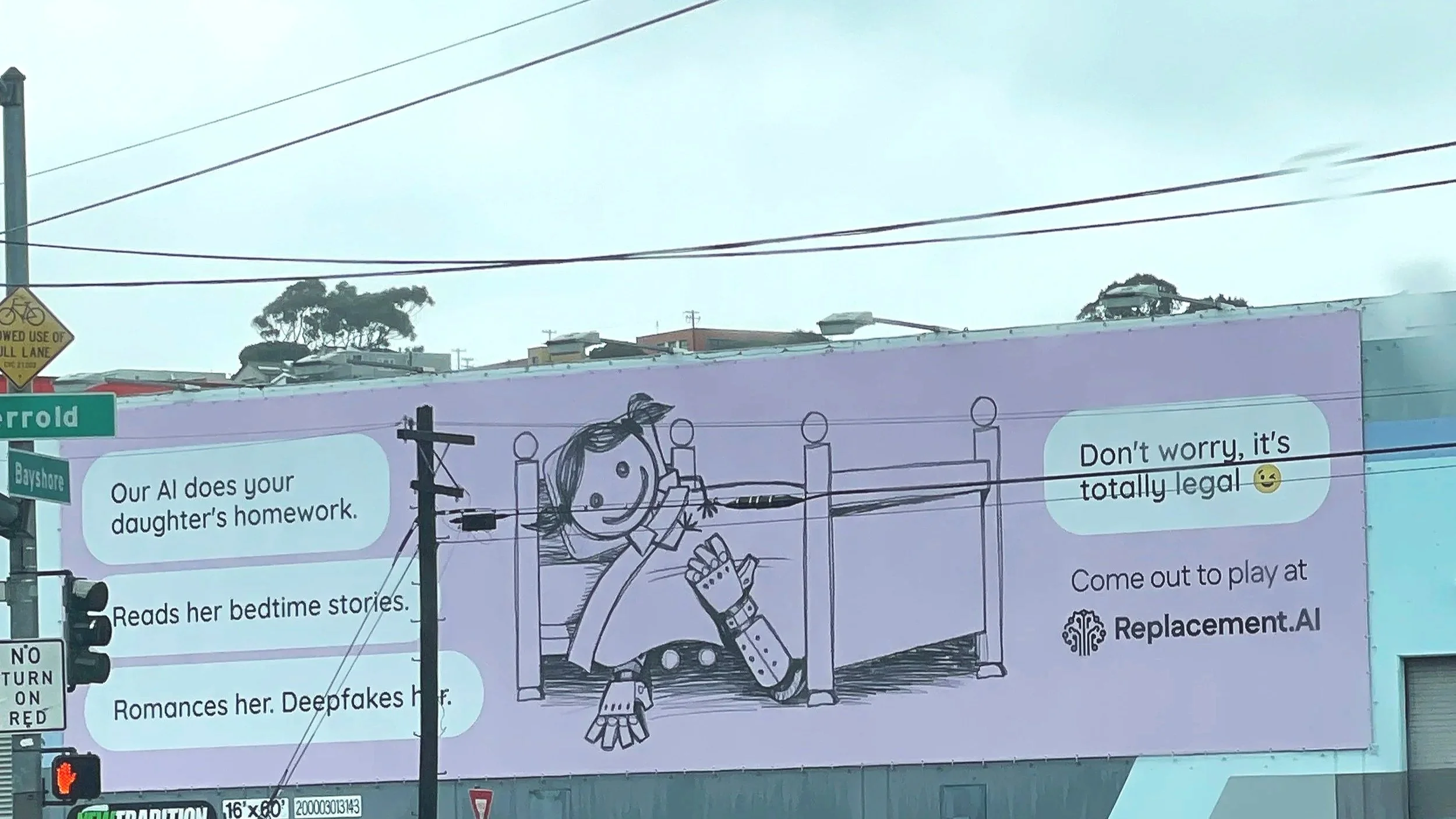Compelling Communication Amidst AI Authorship
Photo by Ana Touriel
What happens when AI is used to create what the human mind does best? I worked at a San Francisco startup developing an AI voice agent for over-the-phone mortgage sales. Reviewing hundreds of calls, I could hear the sound of disengagement in the consumer’s voice when they realized they were not speaking to a human. Most of the time, the bot was convincing enough, but it was unable to engage with the nuances of human conversation. Angry callers asked, “Is this AI?” and swiftly hung up the call or demanded to be transferred to a human.
Generative AI has infiltrated website content creation, with 74% of website content in English reported to have been created using AI. Employees can’t be faulted for using this tool. The ability to brainstorm, edit, and clarify writing with such immediacy is thrilling and leaves more room for person-to-person collaboration—supposedly. But there are limits to what AI can replace. Consider the Google Gemini ad, which sparked outrage by promoting the erosion of skills. In the ad, which, according to advertisers, was otherwise very well executed, a father helps his daughter write a letter to an Olympian runner using AI. Consumers say it exemplified lazy parenting and lacked emotional intimacy on the matter of childhood admiration. The reaction to the Google Gemini ad warns us that this formidable tool must be used with caution, as it blends into our modern human lives.
Professor of Marketing at New York’s Institute of Technology, Colleen Kirk, spearheaded a study of generative AI’s impact in marketing. The research taught us that consumers lose loyalty to brands when AI authors its emotional messages, like in the Google Gemini Ad. “Communications consumers believe are AI-generated are perceived as less authentic than those generated by a human,” leading consumers to feel disloyal towards the brand and feel “moral disgust.” The term coined during Kirk’s research is known as “The AI authorship effect.” Flippant AI usage derails customer loyalty and risks harming the perception of the business.
Image created by AI
In 2024, the Journal of Advertising Research showed consumers the same product descriptions but told some consumers that it was written by AI while telling others that it was written by a human. The consumers who were told the text was written by AI found the writing 33% less authentic, 22% less trustworthy, and 18% less emotionally appealing. There’s no escaping the inherent skepticism that consumers feel towards AI in business.
The overuse of AI in business communication is becoming clichéd, and consumers are demanding more from the businesses that they are loyal to. Nonetheless, there is still space for AI in the business environment. Professor Kirk found that the use of AI for editing or factual information increased consumers' trust.
AI can automate some human tasks to clear space, but businesses must be intentional about its usage in communication. In today’s market, many businesses are competing for the same customers by offering similar products and services. The way to differentiate themselves is through distinct marketing and branding.
Clear and compelling marketing messages across all digital platforms are more important now than ever. In written communication, if language is uncompelling or perceived as having been written by AI, businesses lose authenticity, and the brand is damaged. When websites retain that human touch in a digital space, a competitive edge in today’s market remains. Success relies on intentional communication on digital platforms and its ability to awaken interest in the consumer and lead them towards taking action

